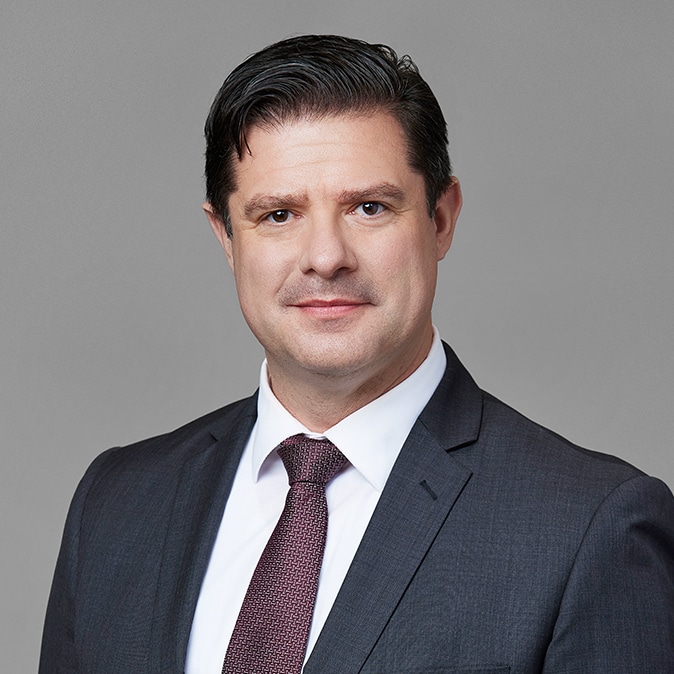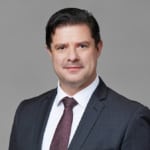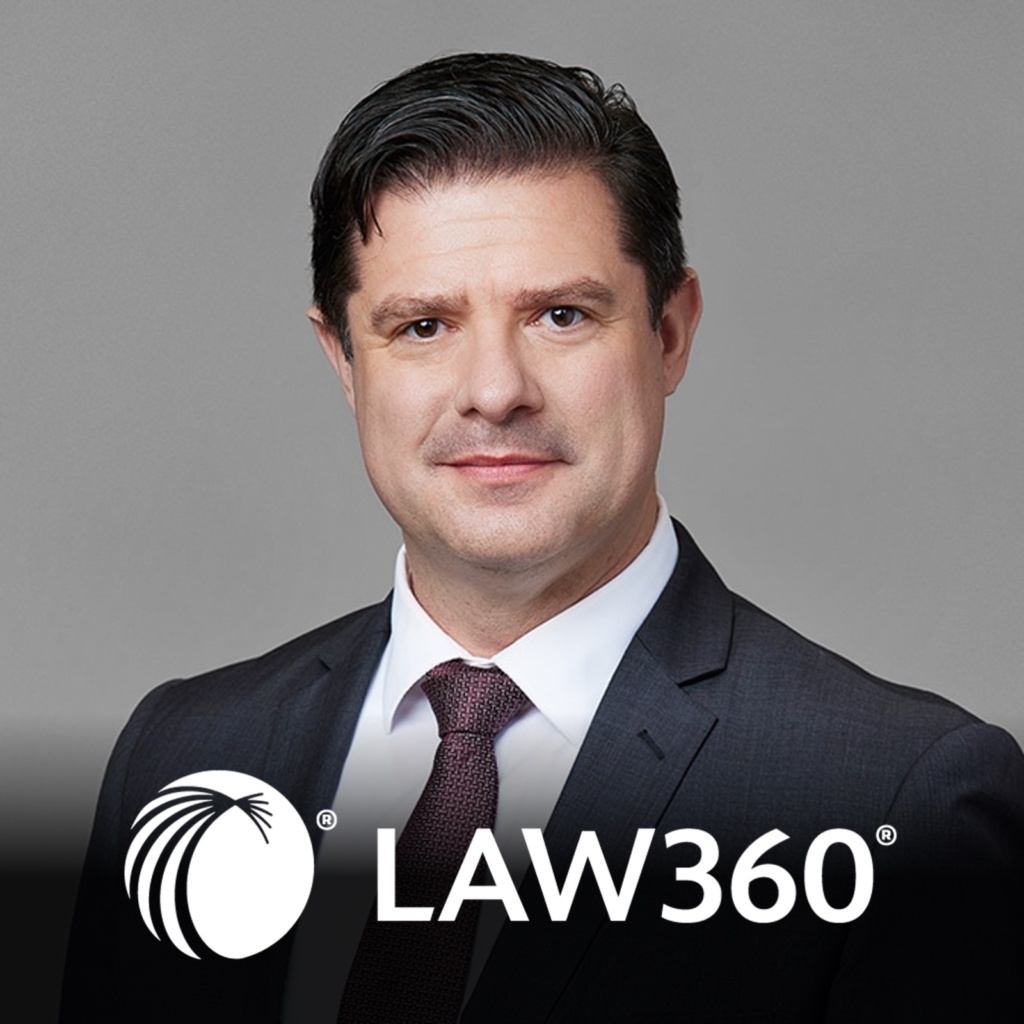

Partner
Matthew A. Seligman
- NYU, Ph.D. (2013)
- Stanford, J.D. (2011)
- Stanford, B.A. B.S. M.A.(2002)
Matthew Seligman is a litigator and strategist with extensive experience at every level of the judiciary—from trial courts to the U.S. Supreme Court. He draws on his years as a legal scholar and practicing attorney to assist clients navigating their most complex and sophisticated legal issues.
Matthew is also recognized as one of the nation’s foremost experts on constitutional and election law. His work in courts, before Congress, and in the national media addresses the highest-profile election issues facing America today. For example:
- In 2024, he argued before Judge Aileen Cannon in United States vs. Trump to defend the constitutionality of the Special Counsel under the Appointments Clause of the Constitution. He is the only private attorney to argue in support of the government in any of the four criminal cases against President Trump.
- In 2023, Matthew served as the principal expert witness on constitutional law testifying on behalf of the California Bar in its successful disciplinary proceeding seeking the disbarment of John Eastman for his role as the legal architect of former President Trump’s attempts to overturn the results of the 2020 presidential election.
- In 2023, the Fulton County District Attorney submitted Matthew’s report on the unlawfulness of alternate electors as its principal exhibit in the criminal prosecution of Kenneth Chesebro.
- In 2023 and again in 2024, Matthew testified before the U.S. House of Representatives on the First Amendment and the dangers of election misinformation on social media (Written Testimony | C-SPAN Testimony).
- In 2020, Matthew represented the NAACP in its successful suit to block the United States Postal Service from slowing the delivery of election mail, facilitating the timely delivery of tens of millions of mail-in ballots.
- He frequently writes for the popular press. In 2024, he published two guest essays in the New York Times: the first, co-authored with Harvard Law professor Lawrence Lessig, on a dangerous strategy by state legislatures to steal a presidential election, and the second on how JD Vance disqualified himself from the vice presidency by pledging himself to using the office’s powers on January 6 to overturn the results of the election.
- Matthew is frequently invited to discuss election issues on national television—e.g., Ali Velshi/MSNBC (discussion of risks of expansion of executive power during potential second Trump administration) (discussion of vulnerabilities of Electoral Count Act that could be exploited in a disputed presidential election); Brianna Keilar/CNN (discussion of potential criminality of then-President Trump’s phone call with Georgia Secretary of State Brad Raffensperger); Smerconish/CNN (discussion of vulnerabilities of Electoral Count Act).
Matthew’s book, How to Steal a Presidential Election (co-authored with Harvard Law professor Lawrence Lessig), was published in 2024 by the Yale University Press. His work has also been published in the Stanford Law Review, the Michigan Law Review, the Vanderbilt Law Review, and other law reviews and peer-reviewed journals.
Matthew is a fellow at the Constitutional Law Center at Stanford Law School. Previously he was a fellow at the Center for Private Law at the Yale Law School, a Climenko Fellow and Lecturer on Law at Harvard Law School, and a Visiting Assistant Professor of Law at the Benjamin N. Cardozo School of Law. In the fall of 2020, he returned to Harvard to co-teach a course on disputed presidential elections with Professor Lawrence Lessig.
Matthew received his J.D. from Stanford Law School, where he was a member of the Supreme Court Litigation Clinic and was the Editor-in-Chief of the Stanford Journal of Law, Business, and Finance. After law school, he clerked for the Hon. Douglas H. Ginsburg on the United States Court of Appeals for the District of Columbia Circuit. He received his Ph.D. in philosophy from New York University, where he focused on moral and political philosophy. He received dual undergraduate degrees in mathematics and philosophy from Stanford University.
Books
How to Steal a Presidential Election (forthcoming, Yale University Press) (co-authored with Lawrence Lessig).
The Law of January 6th (forthcoming).
Academic Publications
Court Packing, Senate Stonewalling, and the Constitutional Politics of Judicial Appointments Reform, 54 ARIZ. ST. L.J. 585 (2022).
Moral Diversity and Efficient Breach, 117 MICH. L. REV. 885 (2019).
The Error Theory of Contract, 78 MD. L. REV. 147 (2018).
Neutral Principles and Political Power: A Response to Reverse Political Process Theory, 70 VAND. L. REV. EN BANC 301 (2017).
Note, Harrington’s Wake: Unanswered Questions on AEDPA’s Application to Summary Dispositions, 64 STAN. L. REV. 469 (2011).
Luck, Leverage, and Equality: A Bargaining Problem for Luck Egalitarians, PHIL. & PUB. AFF., Summer 2007, at 266.
Op-Eds
Ron DeSantis Can Steal the 2024 Election—for Himself, Slate (November 29, 2022).
How Panic on the Left Could Spark a Constitutional Crisis, Politico (November 22, 2022).
The New Bipartisan Bill to Prevent Another Jan. 6 Would Actually Work, Slate (July 21, 2022).
No, Constitutional Scholars Are Not “50/50” in Agreement With Donald Trump About Jan. 6, Slate (November 12, 2021).
John Eastman Is Right: His Election Memo Was “Crazy”, Slate (October 21, 2021).
Working Papers (partial list)
A Realistic Risk Assessment of the Presidential Election of 2024 (working paper).
Disputed Presidential Elections and the Collapse of Constitutional Norms (working paper).
The Vice President’s Non-Existent Unilateral Power to Reject Electoral Votes (working paper).
The Constitutionality and Continuing Risks of the Electoral Count Reform Act (working paper).
Personalized Choice of Private Law (working paper).
Constitutional Law Center, Stanford Law School, fellow
California Political Attorneys Association, member
Overview
Matthew Seligman is a litigator and strategist with extensive experience at every level of the judiciary—from trial courts to the U.S. Supreme Court. He draws on his years as a legal scholar and practicing attorney to assist clients navigating their most complex and sophisticated legal issues.
Matthew is also recognized as one of the nation’s foremost experts on constitutional and election law. His work in courts, before Congress, and in the national media addresses the highest-profile election issues facing America today. For example:
- In 2024, he argued before Judge Aileen Cannon in United States vs. Trump to defend the constitutionality of the Special Counsel under the Appointments Clause of the Constitution. He is the only private attorney to argue in support of the government in any of the four criminal cases against President Trump.
- In 2023, Matthew served as the principal expert witness on constitutional law testifying on behalf of the California Bar in its successful disciplinary proceeding seeking the disbarment of John Eastman for his role as the legal architect of former President Trump’s attempts to overturn the results of the 2020 presidential election.
- In 2023, the Fulton County District Attorney submitted Matthew’s report on the unlawfulness of alternate electors as its principal exhibit in the criminal prosecution of Kenneth Chesebro.
- In 2023 and again in 2024, Matthew testified before the U.S. House of Representatives on the First Amendment and the dangers of election misinformation on social media (Written Testimony | C-SPAN Testimony).
- In 2020, Matthew represented the NAACP in its successful suit to block the United States Postal Service from slowing the delivery of election mail, facilitating the timely delivery of tens of millions of mail-in ballots.
- He frequently writes for the popular press. In 2024, he published two guest essays in the New York Times: the first, co-authored with Harvard Law professor Lawrence Lessig, on a dangerous strategy by state legislatures to steal a presidential election, and the second on how JD Vance disqualified himself from the vice presidency by pledging himself to using the office’s powers on January 6 to overturn the results of the election.
- Matthew is frequently invited to discuss election issues on national television—e.g., Ali Velshi/MSNBC (discussion of risks of expansion of executive power during potential second Trump administration) (discussion of vulnerabilities of Electoral Count Act that could be exploited in a disputed presidential election); Brianna Keilar/CNN (discussion of potential criminality of then-President Trump’s phone call with Georgia Secretary of State Brad Raffensperger); Smerconish/CNN (discussion of vulnerabilities of Electoral Count Act).
Matthew’s book, How to Steal a Presidential Election (co-authored with Harvard Law professor Lawrence Lessig), was published in 2024 by the Yale University Press. His work has also been published in the Stanford Law Review, the Michigan Law Review, the Vanderbilt Law Review, and other law reviews and peer-reviewed journals.
Matthew is a fellow at the Constitutional Law Center at Stanford Law School. Previously he was a fellow at the Center for Private Law at the Yale Law School, a Climenko Fellow and Lecturer on Law at Harvard Law School, and a Visiting Assistant Professor of Law at the Benjamin N. Cardozo School of Law. In the fall of 2020, he returned to Harvard to co-teach a course on disputed presidential elections with Professor Lawrence Lessig.
Matthew received his J.D. from Stanford Law School, where he was a member of the Supreme Court Litigation Clinic and was the Editor-in-Chief of the Stanford Journal of Law, Business, and Finance. After law school, he clerked for the Hon. Douglas H. Ginsburg on the United States Court of Appeals for the District of Columbia Circuit. He received his Ph.D. in philosophy from New York University, where he focused on moral and political philosophy. He received dual undergraduate degrees in mathematics and philosophy from Stanford University.
Publications
Books
How to Steal a Presidential Election (forthcoming, Yale University Press) (co-authored with Lawrence Lessig).
The Law of January 6th (forthcoming).
Academic Publications
Court Packing, Senate Stonewalling, and the Constitutional Politics of Judicial Appointments Reform, 54 ARIZ. ST. L.J. 585 (2022).
Moral Diversity and Efficient Breach, 117 MICH. L. REV. 885 (2019).
The Error Theory of Contract, 78 MD. L. REV. 147 (2018).
Neutral Principles and Political Power: A Response to Reverse Political Process Theory, 70 VAND. L. REV. EN BANC 301 (2017).
Note, Harrington’s Wake: Unanswered Questions on AEDPA’s Application to Summary Dispositions, 64 STAN. L. REV. 469 (2011).
Luck, Leverage, and Equality: A Bargaining Problem for Luck Egalitarians, PHIL. & PUB. AFF., Summer 2007, at 266.
Op-Eds
Ron DeSantis Can Steal the 2024 Election—for Himself, Slate (November 29, 2022).
How Panic on the Left Could Spark a Constitutional Crisis, Politico (November 22, 2022).
The New Bipartisan Bill to Prevent Another Jan. 6 Would Actually Work, Slate (July 21, 2022).
No, Constitutional Scholars Are Not “50/50” in Agreement With Donald Trump About Jan. 6, Slate (November 12, 2021).
John Eastman Is Right: His Election Memo Was “Crazy”, Slate (October 21, 2021).
Working Papers (partial list)
A Realistic Risk Assessment of the Presidential Election of 2024 (working paper).
Disputed Presidential Elections and the Collapse of Constitutional Norms (working paper).
The Vice President’s Non-Existent Unilateral Power to Reject Electoral Votes (working paper).
The Constitutionality and Continuing Risks of the Electoral Count Reform Act (working paper).
Personalized Choice of Private Law (working paper).
Associations
Constitutional Law Center, Stanford Law School, fellow
California Political Attorneys Association, member
Clerkships
- Hon. Douglas H. Ginsburg, United States Court of Appeals for the District of Columbia Circuit

